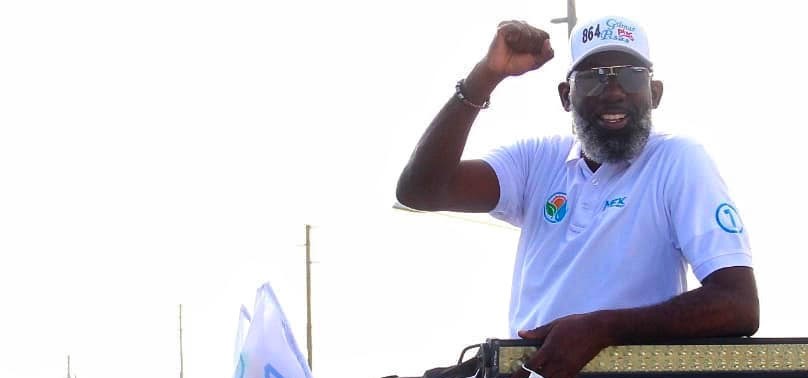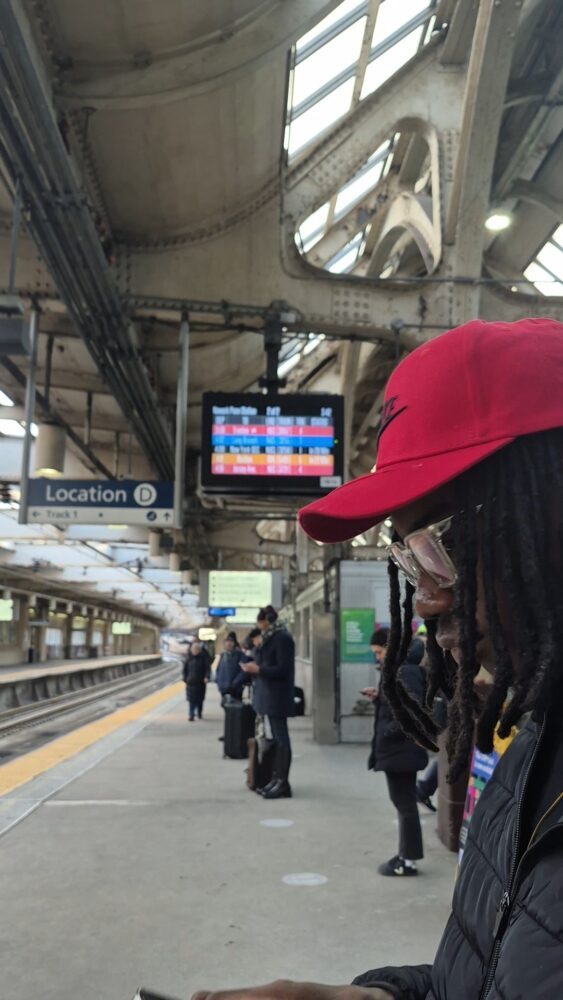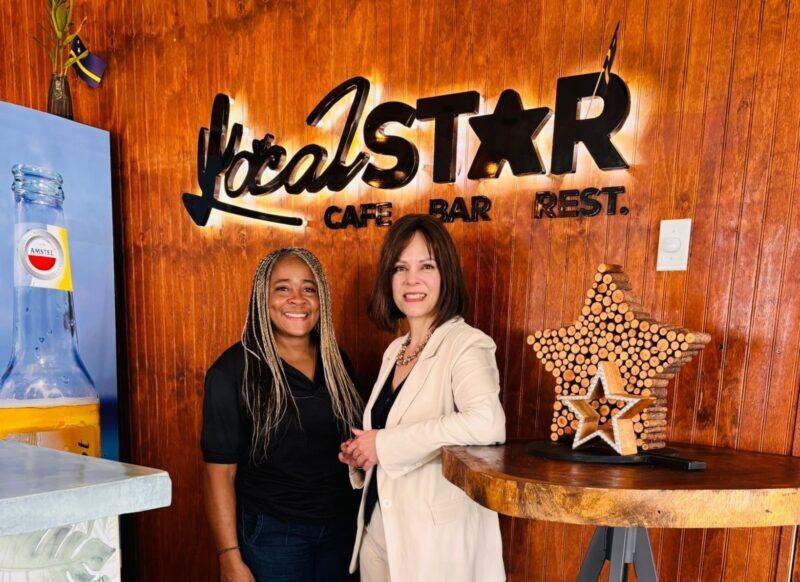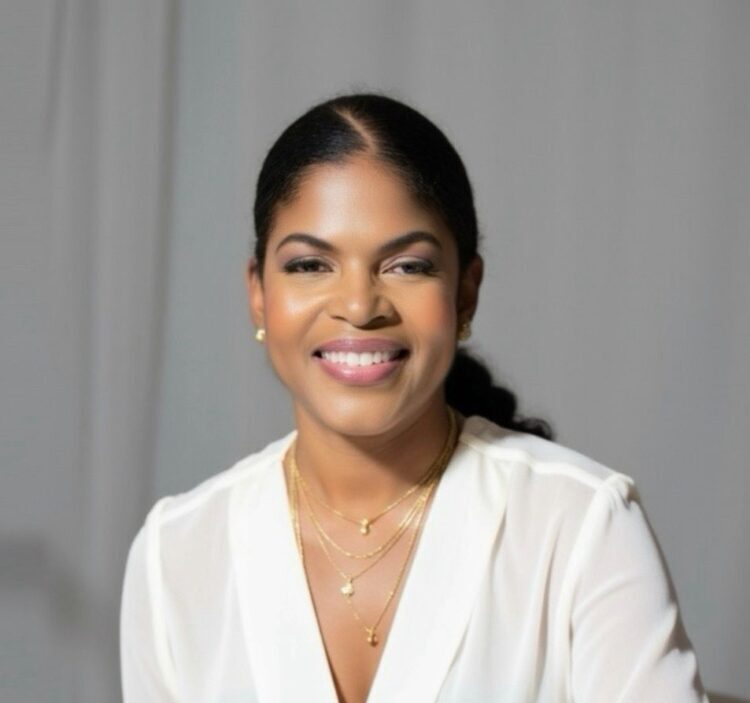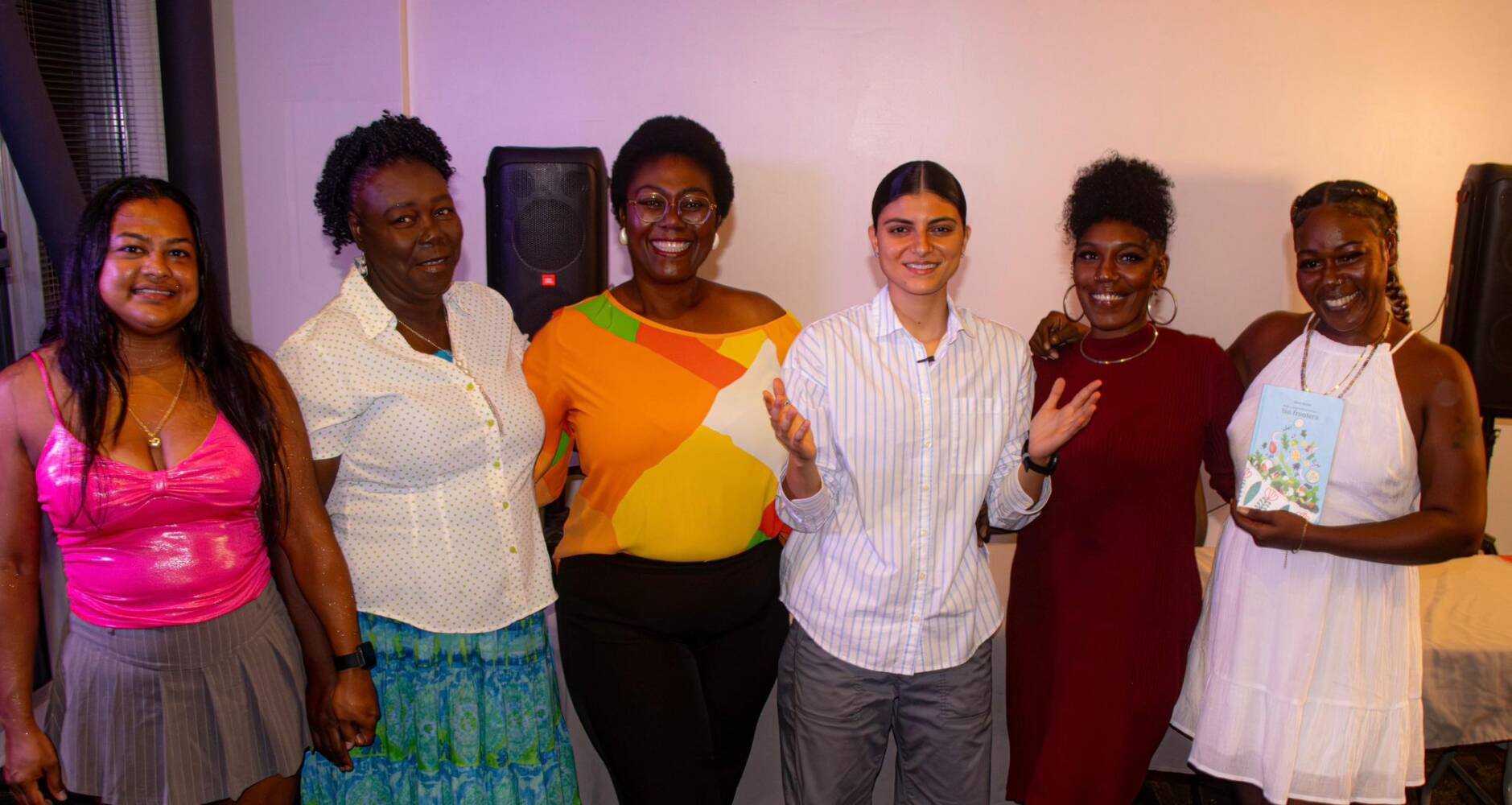WILLEMSTAD – “Believe me! We will be the biggest party. We’re going for 11 seats. No one can stop us.”
The future prime minister of Curaçao, Gilmar Pisas, was extremely enthusiastic and was nearly shouting when he spoke to the media last Friday before he arrived to cast his vote in ‘his’ Banda’bou.
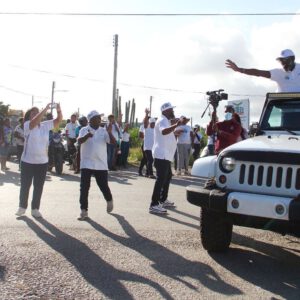
MFK-leader Pisas waves from his car to onlooking supporters. Picture: Facebook
Pisas was supposed to cast his vote at 4 o’clock in the afternoon, but he arrived at five. The caravan with MFK supporters took a long time to make the trip. But when they arrived at the Kolegio San Jose in Barber, Pisas was bursting with enthusiasm. A few hours later, he was proven right when the election results came in.
31 years after Maria Liberia-Peters – prime-minister of the former Netherlands Antilles – of PNP, Pisas also managed to win 9 seats in the Curaçaoan Parliament, which has a total of 21 seats.
Major shift
The Parliamentary elections of March 19th brought upon a major shift in the political landscape of Curaçao. The current coalition consisting of PAR and MAN saw their number of seats diminish greatly (PAR from six to four, MAN from five to two). The following parties who currently hold seats in Parliament will not be returning; Kòrsou di Nos Tur (led by Amparo dos Santos), Movementu Progresivo (led by Marilyn Moses), and Pueblo Soberano (founded by Helmin Wiels who was shot in 2013).
Additionally none of the new ambitious parties such as Vishon, Un Kambio pa Kòrsou and Kumun managed to get enough votes to secure a seat. This makes Pisas the undisputed winner of these elections.
Who is Gilmar Pisas?
Pisas likes to win. He is results-oriented. “People have been underestimating me my entire life. But time and time again I’ve achieved my goals and have delivered good results. And it happened again. The MFK is the biggest party.” The 49 year old Pisas grew up in Soto, one of the poorest communities on Curaçao, in the rural area of Banda’bou and became a police officer.
A long time ago former PNP minister Ersilia de Lannooy saw potential in the tall and slender police officer. He was on the candidate list for PNP. People from Banda’bou voted for him, but none of the promises that the party made about the development of Banda’bou were kept. After that, he joined MAN, same story. He garnered votes for the party but according to Pisas, once again, none of the promises were kept.
Picked-up by Gerrit Schotte
Gerrit Schotte saw something in Pisas when he started his party in 2010 and offered him a spot on the candidate list. Eventually the arduous, hardworking Pisas became number two on the list. After Schotte went to prison at the end of 2018, he became the leader of the party almost by default.
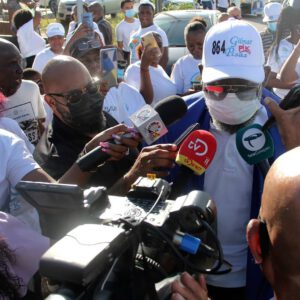
A lot of interest – and lack of distance – when Pisas arrives to cast his vote. Picture: Facebook
Some people saw him as an interim leader. But nevertheless Pisas persisted. He was a strong opposition leader, campaigned hard and achieved the best result for any party on Curaçao since 1990. Now he can become the Prime Minister, which he already was once for a short period in 2017 after the fall of the Koeiman government. But that only lasted for a few weeks. Now his starting position seems a whole lot better.
The current coalition suffered a major blow and the PNP (four seats) seems willing to work with the MFK. Together the two parties have a strong majority of 13 out of the 21 seats in Parliament.
Renegotiate controversial COHO
The first major task: the Caribbean Entity for Reform and Development (COHO) which the Rhuggenaath government – in exchange for financial support – agreed to with the Netherlands in order to implement reforms on Curaçao during the upcoming six years.
‘We’ve been hearing for too long that we can’t do it ourselves’
– Gilmar Pisas
Pisas doesn’t want to implement the COHO, but wants to renegotiate with the Netherlands. He wants to show that he can achieve something for Curaçao. “The people have heard for too long that we can’t do it ourselves. That we need help. I want to show the people that we have great potential. And I want to be a leader that helps his people further develop its potential.”




